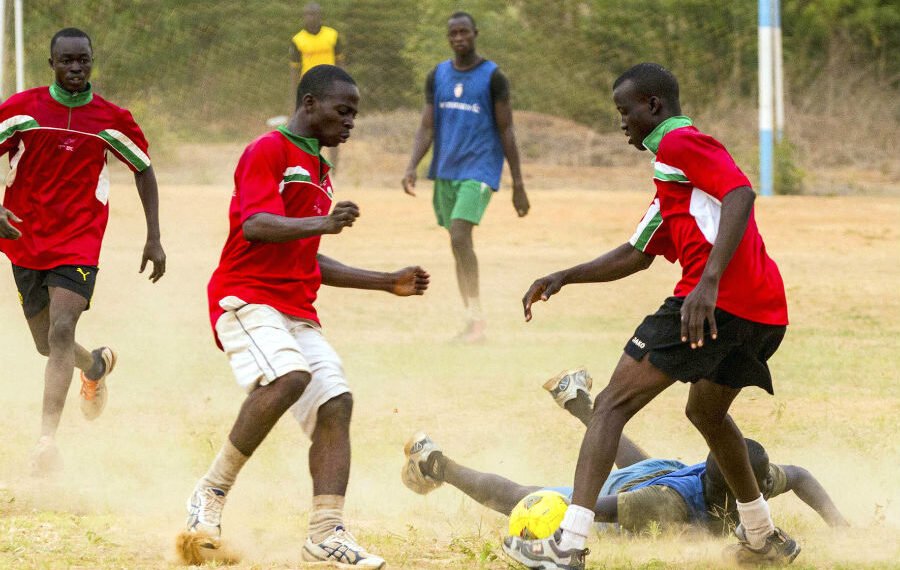African football has long dazzled the world with its raw talent, passionate fans, and historic performances on the global stage.
Yet for years, it has been largely overlooked as a viable destination for large-scale investment. That narrative is now changing. A groundbreaking report released by the World Football Summit (WFS), in collaboration with the #AfricaScores intelligence platform, has revealed that Africa’s football industry holds a commercial investment potential worth a staggering $80 billion. The report repositions African football not as a developing story, but as an investment-grade opportunity primed for global attention.
At the core of the report’s findings is the realization that Africa’s football ecosystem is evolving rapidly, presenting fertile ground for sustainable business ventures. Jaime Domínguez, Content Director at WFS, emphasized this shift in global perspective, stating that African football has moved beyond mere potential into a space of tangible, lucrative opportunities. The continent, which boasts a dynamic and youthful population, is now seen as a strategic entry point for forward-thinking investors looking to align with the future of the sport.
This transition is being fueled by a range of socio-economic and technological trends. The digital transformation across Africa, with over 650 million smartphone users projected by 2025, is creating the world’s fastest-growing mobile-first football audience. This emerging fan base offers unprecedented opportunities for digital engagement, streaming, content creation, merchandising, and e-commerce linked to the game.
Morocco Sets the Standard
One of the key highlights of the WFS report is the spotlight on Morocco’s progressive leadership in African football development. The North African nation is rapidly emerging as the continent’s football innovation hub. With nine stadiums undergoing upgrades with smart technologies, Morocco is integrating sport and education in a comprehensive talent development framework. Its consistent commitment to hosting international tournaments has culminated in a successful joint bid to co-host the 2030 FIFA World Cup alongside Spain and Portugal.
Morocco’s strategic investments over the years underscore a deliberate national agenda to leverage football as a catalyst for economic development and international visibility. From its early World Cup bids starting in 1994 to its successful 2030 joint bid, Morocco has demonstrated resilience and vision. It is setting a benchmark for other African countries to emulate, showing how sport, when backed by infrastructure, technology, and governance, can transform into a serious economic engine.
In contrast to Morocco’s proactive posture, the report’s omission of Nigeria—a nation considered a football giant—has sparked concern among observers. Nigeria, with its vast population and abundant football talent spread across leagues worldwide, was noticeably absent from the WFS analysis. This has raised questions about the country’s current direction in football development.
Despite its achievements on the pitch, Nigeria has never submitted a bid to host the FIFA World Cup. Experts argue that the country needs to learn from Morocco’s strategic approach, particularly in modernizing infrastructure with smart technologies, developing youth talent through structured academies, and integrating sport into broader innovation agendas. Without these strategic interventions, Nigeria risks losing its competitive edge on the continental and global stage.
Unlocking Strategic Business Opportunities
The WFS report also provides a roadmap for global and local stakeholders seeking to participate in Africa’s football renaissance. It highlights the need for a more professional approach to football management across the continent. Consulting opportunities in areas like financial planning, organizational development, and strategic governance are ripe for exploration.
Moreover, the integration of technology in fan engagement platforms, mobile applications, and data analytics solutions opens new avenues for tech companies and investors. As stadiums and training facilities require modern upgrades, there is room for partnerships between governments and private entities in infrastructure development.
Perhaps most promising is the emphasis on developing next-generation talent through academy systems that combine athletic training with formal education. These programs not only yield returns on investment through future player transfers but also contribute to the socio-economic upliftment of communities. The evolution of commercial models from simple sponsorship deals to purpose-driven, long-term partnerships underscores a shift toward sustainable football business practices.
At the World Football Summit held in Rabat, Tlhopie Motsepe, Chairman of Mamelodi Sundowns FC, delivered an inspiring message. “African football stands at a critical juncture. ‘The Sky’s the Limit’ is our motto. It’s a call to inspire Africans to dream big, rise above limitations, and never let their environment define their potential,” he said.
As Africa prepares to co-host the 2030 World Cup, the timing of the WFS report could not be more significant. It offers not only a detailed diagnosis of the current state of African football but also a blueprint for future success. According to Domínguez, the real question for global stakeholders is not whether to engage with African football, but where to begin.
READ ALSO: Adu Boahene’s Legal Justification Rebuked



















